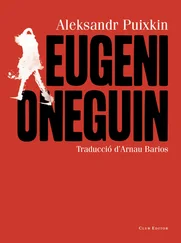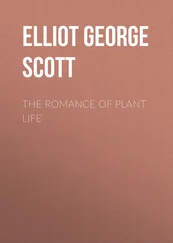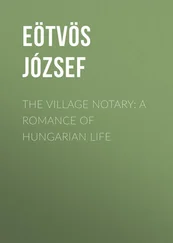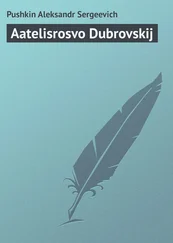Aleksandr Pushkin - Eugene Oneguine [Onegin]. A Romance of Russian Life in Verse
Здесь есть возможность читать онлайн «Aleksandr Pushkin - Eugene Oneguine [Onegin]. A Romance of Russian Life in Verse» весь текст электронной книги совершенно бесплатно (целиком полную версию без сокращений). В некоторых случаях можно слушать аудио, скачать через торрент в формате fb2 и присутствует краткое содержание. Год выпуска: 2007, Жанр: Поэзия, на английском языке. Описание произведения, (предисловие) а так же отзывы посетителей доступны на портале библиотеки ЛибКат.
- Название:Eugene Oneguine [Onegin]. A Romance of Russian Life in Verse
- Автор:
- Жанр:
- Год:2007
- ISBN:нет данных
- Рейтинг книги:4 / 5. Голосов: 1
-
Избранное:Добавить в избранное
- Отзывы:
-
Ваша оценка:
- 80
- 1
- 2
- 3
- 4
- 5
Eugene Oneguine [Onegin]. A Romance of Russian Life in Verse: краткое содержание, описание и аннотация
Предлагаем к чтению аннотацию, описание, краткое содержание или предисловие (зависит от того, что написал сам автор книги «Eugene Oneguine [Onegin]. A Romance of Russian Life in Verse»). Если вы не нашли необходимую информацию о книге — напишите в комментариях, мы постараемся отыскать её.
Eugene Oneguine [Onegin]. A Romance of Russian Life in Verse — читать онлайн бесплатно полную книгу (весь текст) целиком
Ниже представлен текст книги, разбитый по страницам. Система сохранения места последней прочитанной страницы, позволяет с удобством читать онлайн бесплатно книгу «Eugene Oneguine [Onegin]. A Romance of Russian Life in Verse», без необходимости каждый раз заново искать на чём Вы остановились. Поставьте закладку, и сможете в любой момент перейти на страницу, на которой закончили чтение.
Интервал:
Закладка:
Mournful is thine approach to me,
O Spring, thou chosen time of love
He usually left St. Petersburg about the middle of September and remained in the country till December. In this space of time it was his custom to develop and perfect the inspirations of the remaining portion of the year. He was of an impetuous yet affectionate nature and much beloved by a numerous circle of friends. An attractive feature in his character was his unalterable attachment to his aged nurse, a sentiment which we find reflected in the pages of Eugene Oneguine and elsewhere.
The preponderating influence which Byron exercised in the formation of his genius has already been noticed. It is indeed probable that we owe Oneguine to the combined impressions of Childe Harold and Don Juan upon his mind. Yet the Russian poem excels these masterpieces of Byron in a single particular—namely, in completeness of narrative, the plots of the latter being mere vehicles for the development of the poet's general reflections. There is ground for believing that Pushkin likewise made this poem the record of his own experience. This has doubtless been the practice of many distinguished authors of fiction whose names will readily occur to the reader. Indeed, as we are never cognizant of the real motives which actuate others, it follows that nowhere can the secret springs of human action be studied to such advantage as within our own breasts. Thus romance is sometimes but the reflection of the writer's own individuality, and he adopts the counsel of the American poet:
Look then into thine heart and write!
But a further consideration of this subject would here be out of place. Perhaps I cannot more suitably conclude this sketch than by quoting from his Ode to the Sea the poet's tribute of admiration to the genius of Napoleon and Byron, who of all contemporaries seem the most to have swayed his imagination.
Farewell, thou pathway of the free,
For the last time thy waves I view
Before me roll disdainfully,
Brilliantly beautiful and blue.
Why vain regret? Wherever now
My heedless course I may pursue
One object on thy desert brow
I everlastingly shall view—
A rock, the sepulchre of Fame!
The poor remains of greatness gone
A cold remembrance there became,
There perished great Napoleon.
In torment dire to sleep he lay;
Then, as a tempest echoing rolls,
Another genius whirled away,
Another sovereign of our souls.
He perished. Freedom wept her child,
He left the world his garland bright.
Wail, Ocean, surge in tumult wild,
To sing of thee was his delight.
Impressed upon him was thy mark,
His genius moulded was by thee;
Like thee, he was unfathomed, dark
And untamed in his majesty.
Note: It may interest some to know that Georges d'Anthes was tried by court-martial for his participation in the duel in which Pushkin fell, found guilty, and reduced to the ranks; but, not being a Russian subject, he was conducted by a gendarme across the frontier and then set at liberty.
Eugene Oneguine
Petri de vanite, il avait encore plus de cette espece d'orgueil, qui fait avouer avec la meme indifference les bonnes comme les mauvaises actions, suite d'un sentiment de superiorite, peut-etre imaginaire.— Tire d'une lettre particuliere .
CANTO THE FIRST
'The Spleen'
'He rushes at life and exhausts the passions.'
Prince ViazemskiI
"My uncle's goodness is extreme,
If seriously he hath disease;
He hath acquired the world's esteem
And nothing more important sees;
A paragon of virtue he!
But what a nuisance it will be,
Chained to his bedside night and day
Without a chance to slip away.
Ye need dissimulation base
A dying man with art to soothe,
Beneath his head the pillow smooth,
And physic bring with mournful face,
To sigh and meditate alone:
When will the devil take his own!"
II
Thus mused a madcap young, who drove
Through clouds of dust at postal pace,
By the decree of Mighty Jove,
Inheritor of all his race.
Friends of Liudmila and Ruslan, [1] Ruslan and Liudmila , the title of Pushkin's first important work, written 1817-20. It is a tale relating the adventures of the knight-errant Ruslan in search of his fair lady Liudmila, who has been carried off by a kaldoon , or magician.
Let me present ye to the man,
Who without more prevarication
The hero is of my narration!
Oneguine, O my gentle readers,
Was born beside the Neva, where
It may be ye were born, or there
Have shone as one of fashion's leaders.
I also wandered there of old,
But cannot stand the northern cold. [2] Written in Bessarabia.
III
Having performed his service truly,
Deep into debt his father ran;
Three balls a year he gave ye duly,
At last became a ruined man.
But Eugene was by fate preserved,
For first "madame" his wants observed,
And then "monsieur" supplied her place; [3] In Russia foreign tutors and governesses are commonly styled "monsieur" or "madame."
The boy was wild but full of grace.
"Monsieur l'Abbe," a starving Gaul,
Fearing his pupil to annoy,
Instructed jestingly the boy,
Morality taught scarce at all;
Gently for pranks he would reprove
And in the Summer Garden rove.
IV
When youth's rebellious hour drew near
And my Eugene the path must trace—
The path of hope and tender fear—
Monsieur clean out of doors they chase.
Lo! my Oneguine free as air,
Cropped in the latest style his hair,
Dressed like a London dandy he
The giddy world at last shall see.
He wrote and spoke, so all allowed,
In the French language perfectly,
Danced the mazurka gracefully,
Without the least constraint he bowed.
What more's required? The world replies,
He is a charming youth and wise.
V
We all of us of education
A something somehow have obtained,
Thus, praised be God! a reputation
With us is easily attained.
Oneguine was—so many deemed
[Unerring critics self-esteemed],
Pedantic although scholar like,
In truth he had the happy trick
Without constraint in conversation
Of touching lightly every theme.
Silent, oracular ye'd see him
Amid a serious disputation,
Then suddenly discharge a joke
The ladies' laughter to provoke.
VI
Latin is just now not in vogue,
But if the truth I must relate,
Oneguine knew enough, the rogue
A mild quotation to translate,
A little Juvenal to spout,
With "vale" finish off a note;
Two verses he could recollect
Of the Aeneid, but incorrect.
Интервал:
Закладка:
Похожие книги на «Eugene Oneguine [Onegin]. A Romance of Russian Life in Verse»
Представляем Вашему вниманию похожие книги на «Eugene Oneguine [Onegin]. A Romance of Russian Life in Verse» списком для выбора. Мы отобрали схожую по названию и смыслу литературу в надежде предоставить читателям больше вариантов отыскать новые, интересные, ещё непрочитанные произведения.
Обсуждение, отзывы о книге «Eugene Oneguine [Onegin]. A Romance of Russian Life in Verse» и просто собственные мнения читателей. Оставьте ваши комментарии, напишите, что Вы думаете о произведении, его смысле или главных героях. Укажите что конкретно понравилось, а что нет, и почему Вы так считаете.











